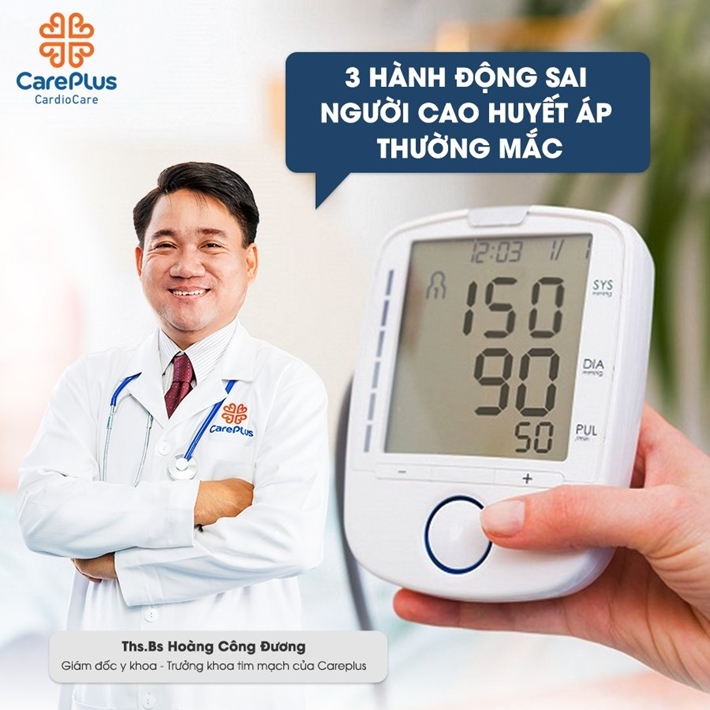3 common mistakes that patients with high blood pressure should avoid
Hypertension is a chronic disease with insidious progression and no symptoms. This disease is increasingly common all over the world and is considered one of the life-threatening diseases. However, we can still control high blood pressure well if we have the proper awareness of the disease and give up bad habits in blood pressure care.

5/27/2021 1:21:26 PM
The wrong actions pointed out by Dr. Hoang Cong Duong in this article stem from the incomplete awareness of hypertension of many patients that he examines and consults daily. So let's consult and avoid making these mistakes!
1. Measure blood pressure several times a day
Self-monitoring of your blood pressure at home is essential for your doctor to control your blood pressure more effectively. However, the self-measurement of blood pressure is psychological pressure, especially for people who are often anxious, "weak astral."
Anxiety activates neural reflexes in the patient's body, resulting in blood pressure at the time of measurement being higher than average at other times of the day.
Therefore, except for exceptional cases, doctors often tell you to monitor and measure blood pressure at home only once a day is enough, no need to measure many times.
2. I just measured my blood pressure and found it high, took my own medicine to take more
Before treatment, your doctor must first explain the goal of therapy and the blood pressure value to understand. At the same time, you must instruct yourself on handling high blood pressure situations at home.
You need to know that doctors never rely on blood pressure measurements alone to decide whether to give medication. In most stable cases, if suddenly your blood pressure is high even to 160-170 mmHg without any symptoms, then you should not take any more medicine right away.
Self-medicating, changing the dose of blood pressure medicine without consulting your doctor will make it difficult for doctors to treat and control blood pressure in particular and cardiovascular disease in general.
Instead of self-medicating, the correct attitude is to calm down, sit (or lie down) to rest, and monitor blood pressure again after 15-30 minutes. And report these events to your doctor at your next visit.
3. Quit blood pressure yourself
After a period of strictly complying, taking medicine regularly, many patients begin to get bored and see no symptoms of headache or fatigue, so they think "the disease is fine" and stop taking the drug themselves.
From the outset, you should discuss it thoroughly with your Cardiologist, asking any questions you want to clarify, such as: why take medication? How long to drink? Can I stop taking my blood pressure medication?...
High blood pressure is a chronic problem; once it is present, it will stay in your body and rarely naturally return to average values (unless you take medicine).
When you stop taking the medication yourself, your blood pressure may remain normal for the first few days. However, after a few weeks, blood pressure will slowly increase gradually, silently acting on the walls of your blood vessels and leading to long-term consequences such as narrowing of the coronary arteries, heart attack, or stroke.
Do not arbitrarily give up blood pressure medication; talk to your Cardiologist about your concerns or wishes to ensure the safety of your heart health.
>>> See more about Cardiovascular disease screening packages HERE
>>> Customers with Cardiovascular health care needs can contact CarePlus to make an appointment at website www.careplusvn.com or Free Hotline 1800 6116